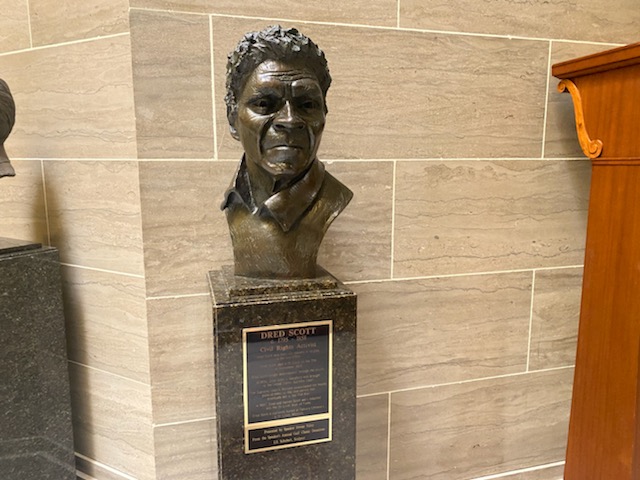JEFFERSON CITY, Mo. — The Senate voted to officially denounce the Missouri Supreme Court’s Dred Scott decision Wednesday.
SCR 3, sponsored by Sen. Steven Roberts, formally condemned the high court’s 1852 decision denying Scott and his wife’s suits for freedom. Similar efforts were sponsored in both chambers during the shortened legislative session last year, but neither made it to adoption.
“SCR 3 states that we as Missourians will forever affirm that all people are created equal,” Roberts said. “The tremendous bipartisan support that this resolution has received in the House over the years has been encouraging, and it’s my sincere hope the Senate can guide it through its final passage.”
The resolution was unanimously adopted by the body. The Scott’s great-great-granddaughter and founder of the Dred Scott Heritage Foundation, Lynne Jackson, contributed to the resolution, according to Roberts.
A bipartisan effort on the House side, with identical resolutions sponsored by Reps. Raychel Proudie and Dottie Bailey, is also underway. Proudie presented the piece in the House Special Committee on Urban Issues, which she chairs, last month.
“Missouri’s bicentennial is a special, important, and opportune moment to denounce the most egregious Supreme Court decision in our nation’s history,” Proudie said. “Missouri’s role in this decision cannot and should not be ignored. This body has a responsibility to Americans of African ancestry living in Missouri to disavow the decision the courts reached nearly 170 years ago.”
Dred Scott and his wife Harriett sued for their family’s freedom in 1840, given that the family had been enslaved for several years in states that had abolished slavery before returning to Missouri. Missouri’s circuit court ruled in the Scotts’ favor, but the state’s Supreme Court overturned the decision, opining that slave states had no obligation to acknowledge the laws of free states.
The U.S. Supreme Court upheld the verdict, denying any person of African descent citizenship under the U.S. Constitution regardless of enslavement or liberation. Scott was eventually granted freedom and worked in St. Louis until his death in 1858.
Missouri abolished slavery with the ratification of its second constitution in 1865.

Cameron Gerber studied journalism at Lincoln University. Prior to Lincoln, he earned an associate’s degree from State Fair Community College. Cameron is a native of Eldon, Missouri.
Contact Cameron at cameron@themissouritimes.com.



























